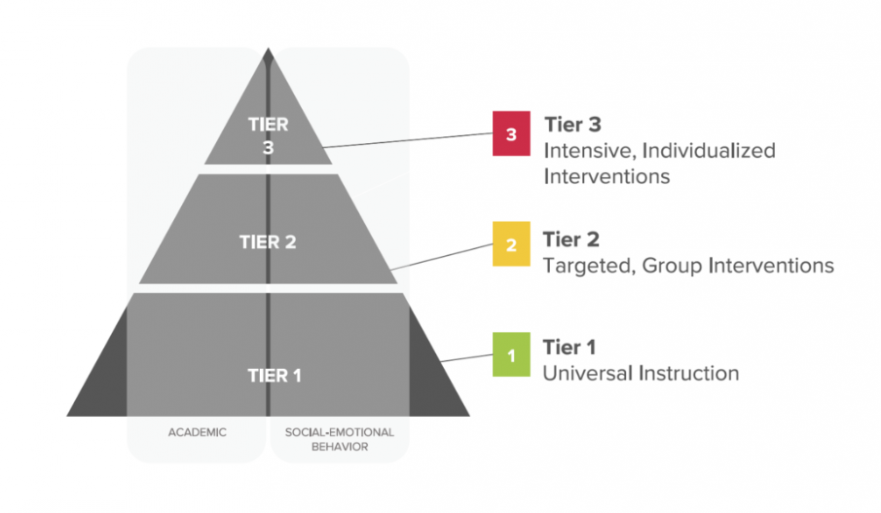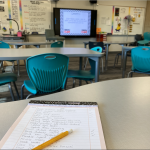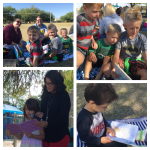It’s the alphabet soup of interventions!
MTSS – Multi-tiered system of support
RTI – Response to intervention
EI – Early intervention
IFSP – Individualized Family Service Plan
EBP – Evidence-Based Practice
IEP – individualized education plan
PBIS – Positive behavior intervention system
DI – differentiated instruction
These are just a few of the acronyms dealing with intervention that I found that I encounter daily. I was a classroom teacher for 22 years and now I have moved into an instructional coaching role. I feel that in this role, the acronyms have doubled. I thought it was a lot when I was a primary teacher! When I started teaching way back in 1999, we just called it small group instruction. I knew that I had to pull kids into a small group, but then I didn’t know what to do with them after that. I needed explicit, direct instruction on how to implement small group instruction/interventions effectively. I did not receive that formal training until later in my career. Looking back, I could have done so much more for my students had I known what to do with data and interventions.
When I was a brand new teacher I also did not know what any of those acronyms meant. I think some of them are relatively new (in the last 15 years). Sometimes the same ideas are just given a new fancy name. The district I was in previously was all about MTSS, but my new district is just beginning the MTSS framework. Thankfully, I am already familiar with that acronym and can help the staff understand the purpose and the process. It would be nice if all districts in the state would be on the same page as far as rolling out processes and programs.
Interventions are not new to any classroom teacher. We know that not all students have the same experiences in school. We collect so much data through assessments, that it can be difficult to decide which data point is the most reliable. In some cases, we assess students so much that there’s little time to provide those desperately needed interventions. Some teachers have not had proper training in how to sort or group students based on the data that has been collected. Data and intervention are extremely intertwined. You must have one to have the other.
My goal for 2023 in my new role as an instructional coach will be to provide strategies to teachers that need a little guidance and support to implement effective, differentiated, small-group instruction. Perhaps explain the difference between all of the previously mentioned acronyms.
The world of education has far too many acronyms for sure. When I looked it up, there were five pages of just educational acronyms. Now that I am a seasoned teacher, the alphabet soup of intervention acronyms are second nature, but we need to take the time and realize that less seasoned teachers may still need that direct, explicit instruction, just like our students do. I am sure there will be more “new” intervention acronyms to come in my career, but for now, I need to stay focused on what teachers and students need, and as long as I keep the goal in mind, everyone will grow! How many of the acronyms did you already know?
image from illuminateed.org









